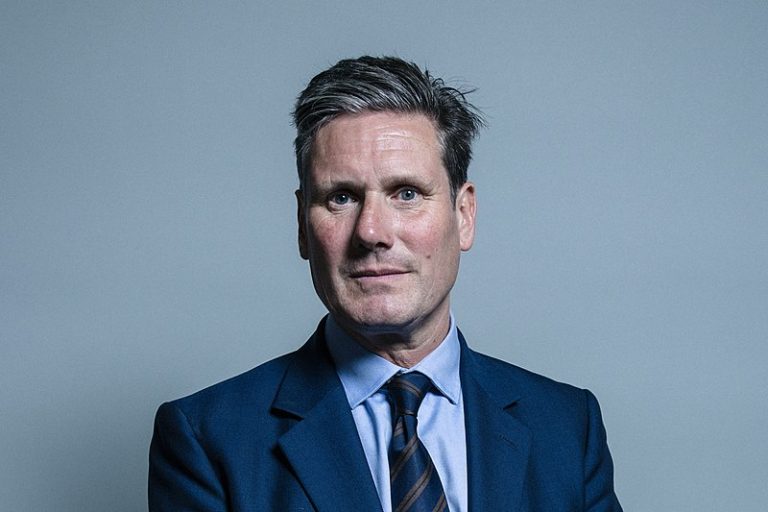There must have been a very uneasy feeling in Labour Party HQ upon reading today’s Times. A poll by Survation found that with a month to go until the Hartlepool by-election, Labour finds itself 7 points behind the Conservatives. This was a seat that the party held under Corbyn in 2019 and undermines one of the main ambitions of Sir Keir Starmer’s leadership – to reconnect and win back the “Red Wall.”
Sunday marked a year since Starmer’s convincing victory in the leadership contest, yet to his critics the latest polling out of Hartlepool gives credence to their claims that his “solid, safety first” approach to Opposition is not cutting it with the party or the electorate. Team Starmer would have hoped that the anniversary would have been met by positive commentary in the media and a membership base motivated to hit the doorstep and phonebanks ahead of the May elections. Instead, he has faced calls from both left and right in Labour to be bolder and to replace key personnel in the Shadow Cabinet, including his Shadow Chancellor and Shadow Home Secretary.
Is the criticism and calls for radical action from Starmer fair or should Labour members give him more leeway and time to win over the British people?
The problematic predecessor
The political context in which Starmer became Leader is worth remembering. The party’s defeat in 2019 was immense and comprehensive – their worst for 88 years, it saw lifelong voters break the stigma of voting Conservative and Labour’s heartland collapse much like the SNP had inflicted in Scotland in 2015. Jeremy Corbyn’s Labour was tainted by anti-Semitism scandals, policies that were viewed as being unrealistic and the perception of having an anti-Britain sentiment.
Starmer adopted the slogan “A new leadership” and has acted decisively in his internal dealings to restore more moderate factions of the party. His removal of the whip from Corbyn is a landmark moment in his leadership so far but has seen him alienate the Labour left, many of whom voted for Starmer’s radical “10-point plan”. Meanwhile, there remain those associated with the New Labour era who believe Starmer’s leadership has not gone far enough to distance his Labour from Corbyn’s. However, the fact that Starmer has at times this year put Labour ahead and regularly at neck-and-neck in the polls is remarkable given the state he inherited the party in.
The Covid crisis & vaccine bounce back
The role of Leader of the Opposition has been severely tested by the Covid-19 pandemic. Attack the Government too much and you are “Captain Hindsight” but do too little and you are perceived as “on the fence” on crucial matters of national importance.
The reality facing Labour is that the end of the pandemic is in sight, the vaccine programme has been a UK success story and Johnson’s Government now appears to have more grip – with the more cautious roadmap out of lockdown so far proceeding unhindered. As the May elections approach, this feeling of national optimism aligned with a likely low turnout could make it a very difficult night for Labour indeed and may turn up the heat on Starmer and his team to make major changes.
The long game
Allies of Starmer point out that polls are by their nature volatile, one year into David Cameron’s leadership of the Conservatives saw him tarnished with a -5% poll rating, with a section of his party dismayed with his actions and a public unsure what he stood for in the shadow of a then popular Prime Minister. However, he would go on to prove them wrong.
Many parallels can be drawn here with Starmer, he is still relatively unknown and there is still a long time to go until the next General Election, meaning a lot can happen to damage a Government’s standing in the meantime. Labour HQ is maintaining this longer-term approach, seeing the first year of his leadership as the “rebuilding the Labour brand” phase of Keir’s strategy.
Room for improvement?
However, one thing David Cameron was successful in doing was making good use of a crisis, as he pinned the economic downturn on Labour’s economic philosophy and approach which has remained a thorn in Labour’s side to this day. Starmer needs to find a similar moment, perhaps around a public inquiry into Covid that would allow him to make the case as to why it was 10 years of Conservative Governments that led to the UK having such a weak initial response to the pandemic. This could be used as a line of attack in the run up to 2024.
There have been times over the past year where Starmer has been too cautious, a common criticism has been that Marcus Rashford has been a more effective leader of the opposition due to his campaigning on free school meals and universal credit. As my colleague Abby Tomlinson has pointed out too, “Starmer has been under criticism from all sides of the party for his digital efforts so far” – given the pandemic has pushed much of our political discourse online, this must surely be addressed.
As the latest poll from Hartlepool shows, Starmer’s task is colossal and may indeed see Labour go backwards before things get better. His first year as leader has been a mixed picture, clearly, there are merits to his longer-term strategy but he must find his voice soon in order to change the fortunes of his party.





